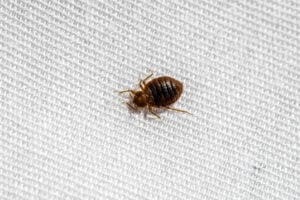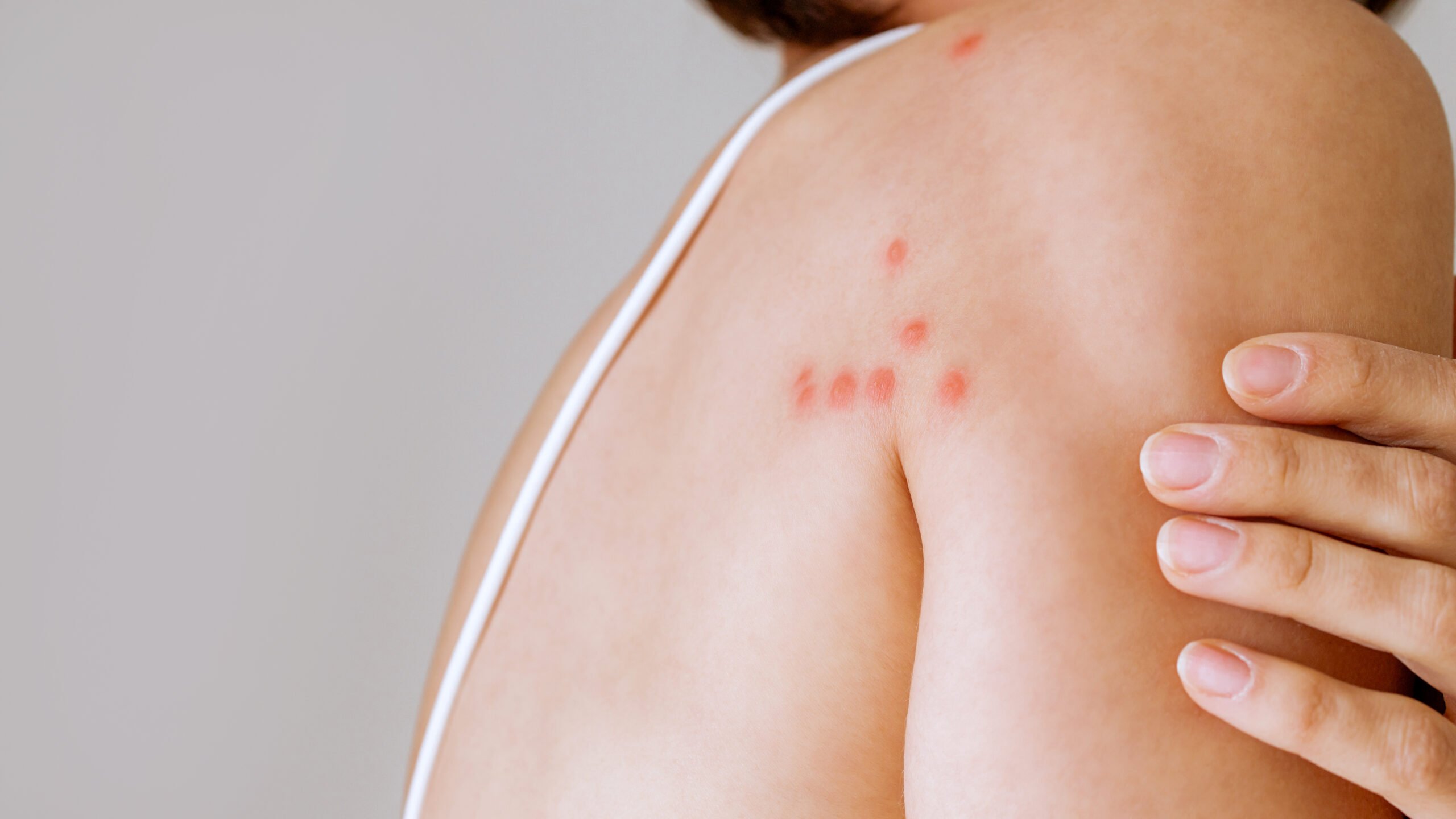What are bed bugs?
Bed bugs are blood-feeding insects that are found in most developed countries and have increased over the last couple of decades due to an increase in international travel and resistance to pest control.
There are 2 main species of bed bugs: Cimex lectularius and Cimex hemipterus. Cimex lectularius is found in temperate areas and Cimex hemipterus is found in tropical zones. They are brown, flat, and wingless, and they look like apple seeds or small brown lentils.

They have a multistage developmental life cycle, and they need to feed on a human every 3 to 5 days to progress through their stages. They do lay about 500 eggs a day, and amazingly, they can survive for about a year in any temperature without eating at all.
Where are bed bugs found?
Bed bugs hide during the day in dark spaces near beds. They hide under bed boards, behind curtains, in loose or peeling furnishings or in crevices in furniture and mattresses. They are found in hotels, hostels, night trains, cruise ships and nursing homes, and they travel from suitcase to suitcase on a luggage carousel at the airport.
They fear light and avoid glossy surfaces, so they will be deterred by shiny, hard suitcases, which should be lifted up onto a suitcase rack in hotels (or even placed in the bath overnight). Hotels have come to dread the arrival of bed bugs as they can travel from room to room through electric wiring or ventilation ducts, so they keep appearing on different floors.
Despite the fact that they are easily visible, in a survey, only 10 percent of adults recognised a bed bug once shown one. If you accidentally tread on one, crushed bed bugs have a characteristic smell like raspberries and can be sniffed out easily by trained beagles.
How common are bed bugs in Chelsea?
This is very difficult to answer as naturally people try not to talk about bed bugs they have discovered in their home, hotel or holiday apartment. Rentokil did report a 65% increase in infestations in the second quarter of 2022, and there are press articles on recent infections in Paris, New York and London. We see bed bug bites quite often in Sloane Street surgery and they are commonly seen in general practice in all big international cities.
What are the symptoms of a bed bug infestation?
Bed bugs bite at night and start by injecting an anaesthetic into the skin so bites are not felt and often cause no reaction at all. Some patients develop an allergic reaction to their saliva, and the reddened bites will manifest about eleven days later.
About 30 percent of members of a bug-infested household are likely to show a skin reaction, and if so, 2-5mm itchy lesions will appear on uncovered areas of the body, often in a line where the bedbug has walked (breakfast, lunch, dinner…). Very occasionally, a more profound allergic response can occur with diffuse hives, asthma, or anaphylaxis, but this is extremely rare. Thankfully, they carry no diseases.
What else could it be?
If we see bites, we always think of fleas, especially in families with cats and dogs, especially if there is a more characteristic appearance of a flea bite. We also think about scabies, especially if intensely itchy in web spaces of hands and feet, forearms, chest and genital areas.
In addition to arthropod bites, there are many skin conditions that cause characteristic rashes and itchiness, so differential diagnosis is important. On rare occasions, a skin biopsy can be helpful or looking with a dermatoscope for the characteristic punctum in the middle of the bite.
How are infestations managed?
If we diagnose bed bugs we are likely to give you a one week course of topical steroid and antihistamine, and if your bites are infected or you are developing impetigo (a type of skin infection) we may treat you with antibiotics.
The most important part of the treatment will be the role of a professional pest control service. They will look for evidence of bed bugs’ faecal material on your mattress (brown streaks) look for eggs and mature bugs, and then advise on how to best eradicate them with insecticides and cleaning procedures.
Although you may have to vacate your bedroom briefly, if they are caught early, they are easily eradicated. Thankfully, there’s no need to worry, so do make an appointment to come and see us if you have any concerns at all about bites after returning from holiday.
To book an appointment online click here or call us on 0207 245 3999.
About the author

MBBS DCH DRCOG MRCGP
“I love working with the other doctors and staff, but what sticks with me are the interesting conversations we have with our patients, every day”.
As a GP, I have worked both in the NHS and privately and spent 8 years as School Doctor to The Hall School in Hampstead. I joined Sloane Street Surgery in 2015.
I particularly like seeing teenagers, adults and the elderly. I really enjoy general medicine, obstetrics and gynaecology, care of older patients and looking after patients in distress.
The joy of being a GP in a group practice working alongside other doctors is that I learn every day, through my own research but also constant conversation.



